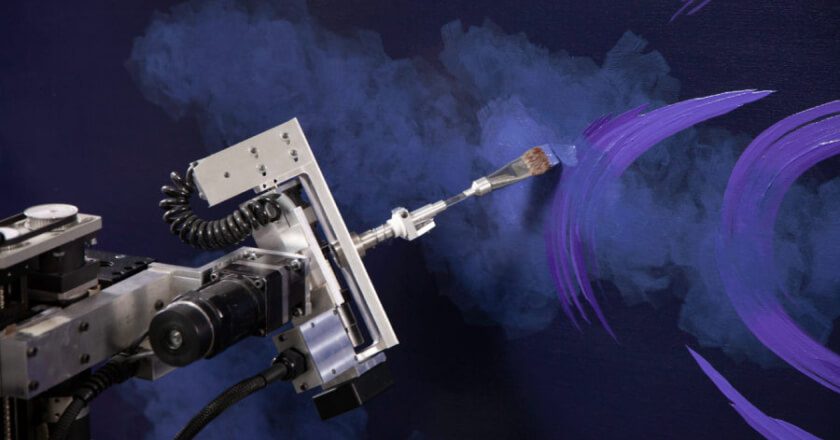Get Inspired
Build the life you love. Learn more about fusioneering:

Posted on October 26, 2023 in Inspirational People
Throughout history, the STEM fields have been seen as a gated boys’ club — despite the fact that women have always had their place on the forefront of scientific innovation and discovery. Female scientists and innovators have made indelible marks on knowledge and society, challenging stereotypes and breaking barriers to pave the way for future generations. Though countless STEM women have made — and continue to make — giant ripples in the body of scientific progress, today we’re celebrating five women who are often considered among the most significant contributors to their respective fields.
Read More: The Victorian Woman that Conceived Modern Computing
Marie Curie, a name entirely synonymous with groundbreaking scientific discovery, was a trailblazing physicist and chemist. In a time when women faced numerous obstacles in the sciences, Curie made history by becoming the first woman to win a Nobel Prize — not once but twice. Today, she remains the only person to have won Nobel Prizes in two different scientific fields (physics and chemistry). Her pioneering research on radioactivity led to the discovery of two new elements, polonium and radium, and opened up new frontiers in the fields of nuclear physics and medicine.
Curie’s tireless dedication to her work and her unwavering pursuit of knowledge serve as an enduring source of inspiration for scientists worldwide, especially women, as she defied societal norms to make her mark on the scientific world.
Related: Motivate Yourself to Work as Hard as the Greats
Rosalind Franklin’s contributions to the field of molecular biology were instrumental to one of the most significant scientific breakthroughs of the 20th century: the discovery of the double helix DNA structure. Her expertise in X-ray crystallography yielded photographs of DNA fibers as well as crucial insights into the molecular structure of DNA, setting the stage for the groundbreaking work of James Watson and Francis Crick.
While her role in this discovery was initially overshadowed, Franklin’s meticulous research and dedication to scientific rigor have since earned her the recognition she deserves. Her legacy reminds us of the importance of perseverance and meticulous observation in scientific inquiry.
Barbara McClintock, a pioneering geneticist, revolutionized our understanding of genetics with her discovery of transposons, colloquially known as “jumping genes” (DNA sequences that can move or “jump” from one part of the genome to another, potentially causing changes in an organism’s genetic information). Her work challenged conventional notions of genetic inheritance and gene regulation, ultimately earning her the Nobel Prize in Physiology or Medicine in 1983.
McClintock’s pioneering spirit and fearless pursuit of unconventional ideas demonstrate the value of thinking outside the box in scientific research. Her legacy continues to inspire geneticists and scientists across disciplines to explore new frontiers.
Related: How to Solve Problems Like a Scientist
Rachel Carson, although not a scientist in the traditional sense, made an undeniable impact on the field of environmental science with her 1962 book, Silent Spring. Through meticulous research and powerful prose, Carson exposed the harmful effects of pesticides, particularly DDT, on the environment and human health. Her work ignited the modern environmental movement, leading to the establishment of the Environmental Protection Agency and a nationwide ban on DDT for agricultural use.
Carson’s legacy serves as a powerful reminder that knowledge itself can be a catalyst for widespread positive change, inspiring individuals to advocate for the protection and preservation of our planet.
Related: How to Fusioneer a Better Future
Jane Goodall’s work in primatology and animal behavior has not only advanced our understanding of chimpanzees, but has also bridged the gap between humans and our closest relatives in the animal kingdom. Her immersive, long-term study of chimpanzees in Tanzania’s Gombe Stream National Park revealed remarkable insights into the complex social behaviors, tool-making abilities, and communication skills used by primates.
Goodall’s dedication to conservation and her tireless advocacy for the natural world remind us of the incredible importance of empathy and stewardship in the realm of science, motivating countless individuals to seek better protections for the environment and its inhabitants.
The women listed above are but a small few of the multitude of influential women in STEM fields. Who’s your favorite woman in science? Let us know and get the discussion started on The Kirby Foundation’s Instagram, Facebook, and Pinterest!
Are you interested in hearing the complete story of Paul and Dulcinea? Watch the video (nominated for Best Short Film at the 2021 Vail and Portland Film Festivals) for more info.
Want to be the first to know about every exciting new project at the Kirby Foundation?
Join Our Mailing ListBuild the life you love. Learn more about fusioneering:
Why pick which passion you should follow? Fusioneering allows you to cultivate many interests into something innovative and revolutionary.

Meet Paul and explore how blending your interests can empower you to follow your enthusiasm and bring your passions to life.